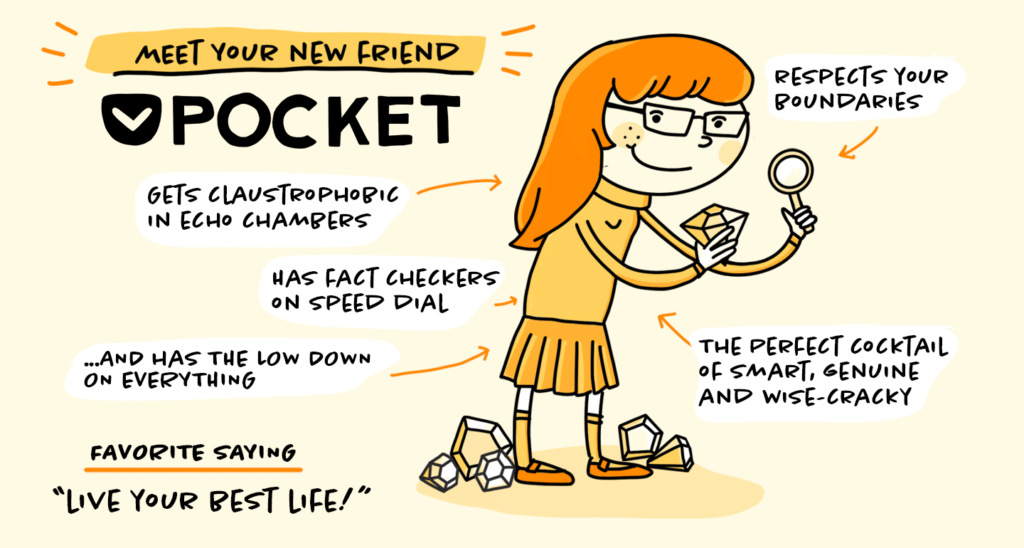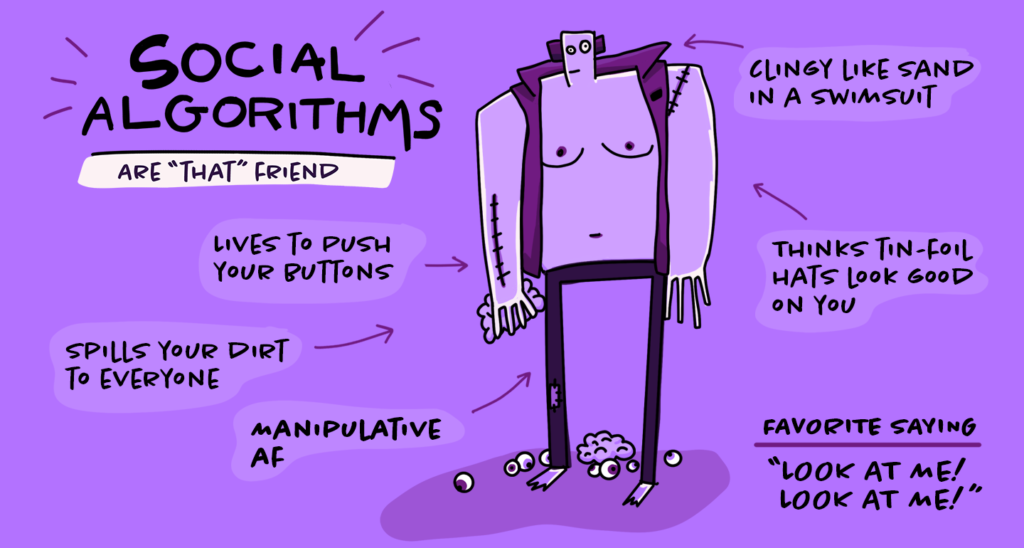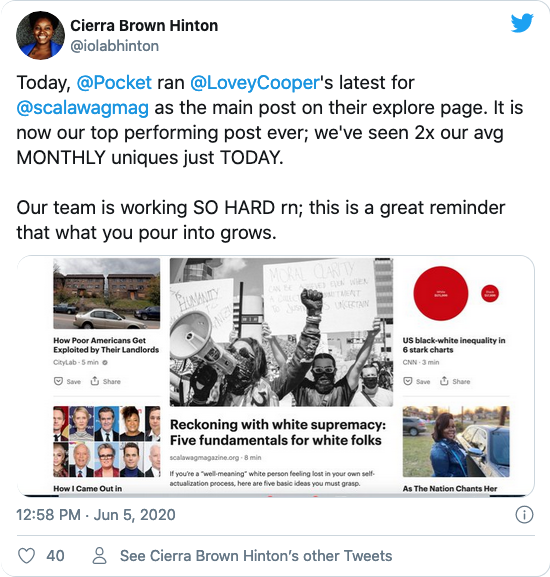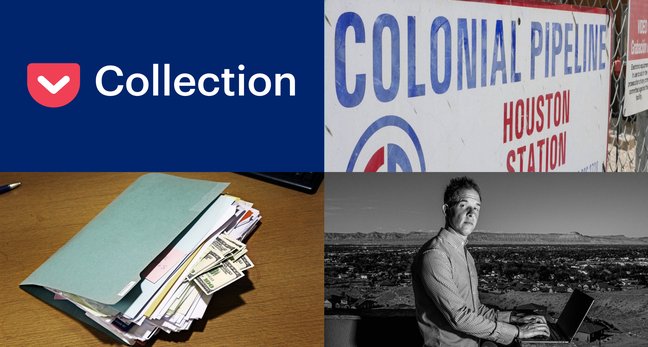Break free from the doomscroll with Pocket
Last year a new phrase crept into the zeitgeist: doomscrolling, the tendency to get stuck in a bad news content cycle even when consuming it makes us feel worse. That's no surprise given that 2020 was one for the books with an unrelenting flow of calamitous topics, from the pandemic to murder hornets to wild fires. Even before we had a name for it and real life became a Nostradamus prediction, it was all too easy to fall into the doomscroll trap. Many content recommendation algorithms are designed to keep our eyeballs glued to a screen, potentially leading us into more questionable, extreme or ominous territory.
Pocket, the content recommendation and saving service from Mozilla, offers a brighter view, inviting readers to take a different direction with high-quality content and an interface that isn't designed to trap you or bring you down. You can get great recommendations and also save content to your Pocket, both in the app and through Firefox, every time you open a new tab in the browser. Pocket doesn't send you down questionable rabbit holes or bombard you with a deluge of depressing or anxiety-producing content. Its recommendations are vetted by thoughtful, dedicated human editors who do a lot of reading and watching so you don't have to dig through the muck.
I've always loved reading, and it is definitely a thrill to read all day at my desk and not feel like I'm procrastinating. I'm actually doing my job," said Amy Maoz, Pocket recommendations editor.
Amy and colleague Alex Dalenberg are two members of Pocket's human curator team, and they are some of the people who look after the stories that appear on the Firefox new tab page.
Every day, Pocket users save millions of articles, videos, links and more from across the web, forming the foundation of Pocket's recommendations. From this activity, Pocket's algorithms surface the most-saved and most-read content from the Pocket community. Pocket's human curators then sift through this material and elevate great reads for the recommendation mix: in-depth features, clever explainers, curiosity chasers, timely reads and evergreen pieces. The curator team makes sure that a wide assortment of publishers are represented, as well as a large variety of topics, including what's happening in the world right now. And it's done in a way that respects and preserves the privacy of Pocket readers.
I'm consistently impressed and delighted by what great content Pocket users find all across the web," said Maoz. Our users do an incredible job pointing us to fascinating, entertaining and informative articles and videos and more."
Saving something in your Pocket is different from, say, pressing the like' button on it," Alex Dalenberg, Pocket recommendations editor, added. It's more personal. You are saving it for later, so it's less performative. And that often points us to real gems."
It makes sense that a lot of big, juicy stories end up in Pocket; articles from The New York Times, The Guardian, Wired and The Ringer are regularly among the top-saved by readers. Pocket's algorithms also flag stories from smaller publications that receive a notable number of saves and highlight them to the curators for consideration. That allows smaller publications and diverse voices to get wider exposure for content that might have otherwise flown under the radar.
The power of the web is that everybody owns a printing press now, but I feel like we've lost a bit of that web 1.0 or 1.5 feeling," Dalenberg said. It's always really exciting when we can surface exceptional content from smaller players and indie web publications, not just the usual suspects. It's also great to hear people say how much they like discovering new publications because they saw them in Pocket's recommendations."

 The power of a Pocket recommendation
The power of a Pocket recommendationScalawag magazine is a small nonprofit publication dedicated to U.S. Southern culture and issues, with a belief that great storytelling and reporting can lead to policy changes. Last June, Scalawag published a round-up piece entitled Reckoning with white supremacy: Five fundamentals for white folks to share how they had been covering issues of systemic racism in the South and police systems since it launched in 2015.
I wrote it mostly for other folks on the team to use as a guide to send to well-meaning friends who found themselves suddenly interested in these issues in the summer of protests, almost as a reference guide for people unfamiliar with our work but who wanted to learn more," said Lovey Cooper, Scalawag's Managing Editor and author of the piece.
Cooper published it on a Wednesday evening and sent it to a few friends on Thursday. By Friday morning, traffic was suddenly overwhelming their site, and Pocket was the driver. The Pocket team had recommended Cooper's story on the Firefox new tab, and people were reading it. Lots of them.

I watched the metrics as I sat on the phone with various tech gurus to get the site back up and running, and within two hours - even with the site not working anywhere except in-app viewers like Pocket - the piece became our most viewed story of the year," she said.
By Sunday, Scalawag saw more than five times its usual average monthly visitors to the site since Friday alone. They gained hundreds of new email subscribers, and thousands in expected lifetime membership and one-time donation revenue from readers who had not previously registered on the site. It became the most viewed story Scalawag had ever published, beating out by a huge margin the couple of times The New York Times featured them.
The rest of June was a whirlwind too," Cooper said. We were being asked to speak on radio programs and at events like never before, due to our unique positioning as lifelong champions of racial and social justice. Just as those topics came into the mainstream zeitgeist, we were perfectly poised to showcase to the world that, yes, Scalawag has indeed always been fighting this fight with our stories - and here are the articles to prove it."
Cooper's piece was also included in a Pocket collection, What We're Reading: The Fight for Racial Equity, Justice and Black Lives. Pocket has continued to publish Racial Justice collections, a set of in-depth collections curated by Black scholars, journalists and writers.
We saw this as an opportunity to use our platform to amplify and champion Black voices and diverse perspectives," said Carolyn O'Hara, Director of Editorial at Pocket. We have always felt that it's our responsibility at Pocket to highlight pieces that can inform and inspire from all across the web, and we're more committed to that than ever."
Scalawag's story shows how Pocket's curated recommendations can provide hungry readers with context and information while elevating smaller publishers whose thoughtful content deserves more attention and readership.
Quality content over dubious informationThe idea that everyone has a printing press thanks to the internet is a double-edged sword. Anyone can publish anything, which has also opened the door to misinformation as a cottage industry. Then it shows up on social media. And with more people turning to social media as their news and information sources, even when it isn't vetted, misinformation quickly takes off and does damage. But you won't find it in Pocket.
The Pocket editorial team works hard to maintain one bias: quality content. Along with misinformation, you won't find clickbait on Pocket, nor are you likely to find breaking news. Those are more in the moment reads, rather than save it for later reads. Maoz asserts that no one really saves articles like Here's what 10 celebs look like in bikinis to read it tomorrow. They might click it, but they don't hold onto it with Pocket.
 Essential Reading: What is ransomware?
Essential Reading: What is ransomware?Here's what you need to know about the growing cybersecurity threat.
View the collectionAnd when it comes to current events and breaking news, you'll find that Pocket recommendations often have a wider or higher altitude view. We're not necessarily recommending the first or second day story but the Sunday magazine story," Dalenberg adds, since it's often the longer, more in-depth reads that users are saving. That would be the history of the bathing suit, for example, rather than a clickbait celeb paparazzi story, whose goal might solely be to deploy online tracking and serve ads more so than to provide quality content.
People are opening a new tab in Firefox to do something, and we aren't trying to shock or surprise them into clicking on our recommendations, to bait them into engaging, in other words," said Maoz. We're offering up content we believe is worthy of their time and attention. "
Curators won't recommend content to Pocket that they believe is misleading or sensational, or from a source without a strong history of integrity. They also avoid articles based on studies with just a single source, choosing instead to wait until there is more information to confirm or debunk the story. They also review the meta-image - the preview image that appears when an article is shared. Since they don't have control over what image a publisher selects, they take care to avoid surprising people with inappropriate visuals on the Firefox new tab.
As part of the Mozilla family, Pocket, like Firefox, looks out for your privacy.
Pocket doesn't mine everyone's data to show them creepily targeted stories and things they don't actually want to read," Maoz said. When I tell people about what I do at Pocket, I always tie it back to privacy, which I think is really cool. That's basically why we have jobs - because Mozilla cares about privacy."
The post Break free from the doomscroll with Pocket appeared first on The Mozilla Blog.